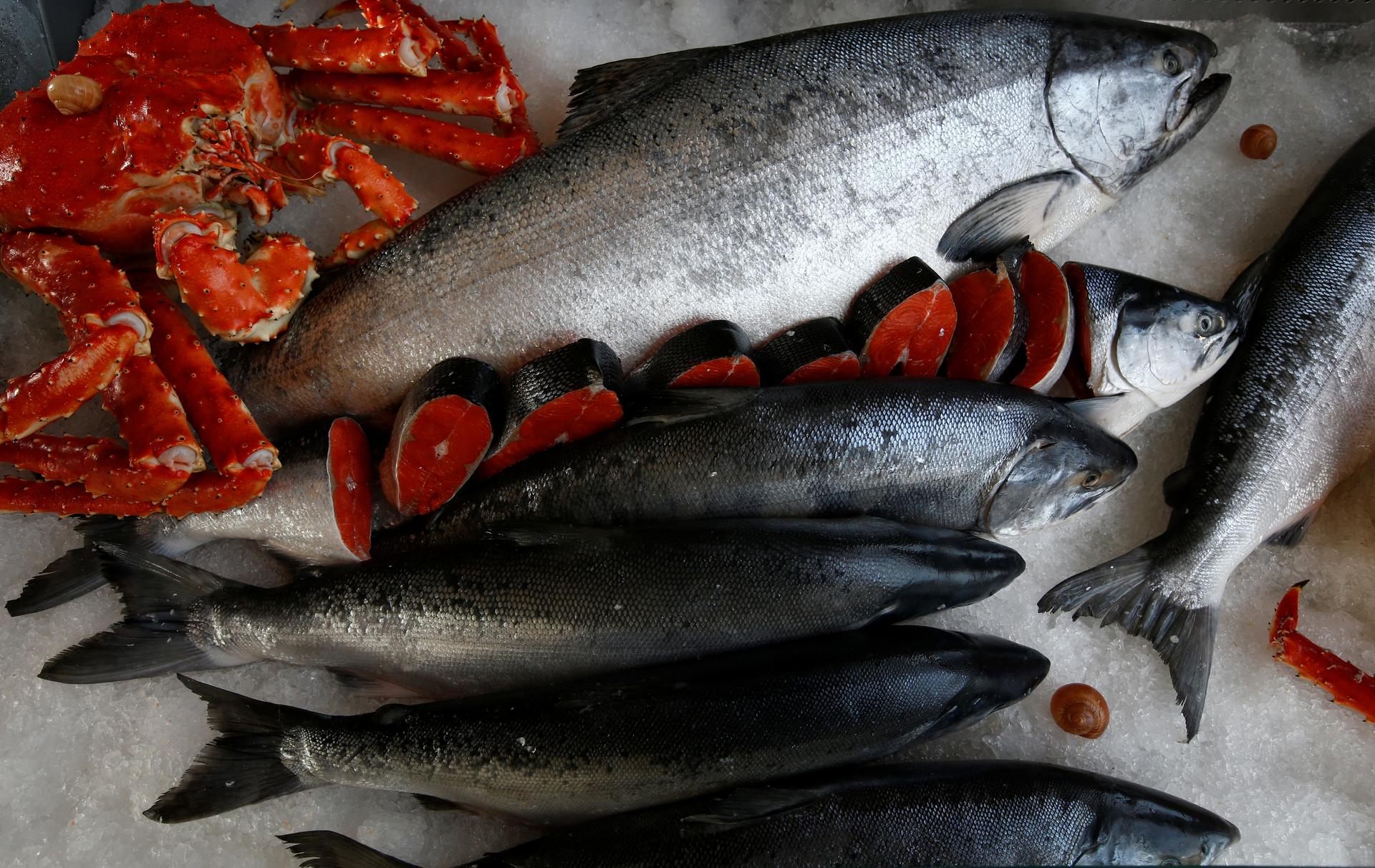Fish and seafood are on display in Vladivostok, Russia, Sept. 6, 2017.
Have you bought any frozen fish from your supermarket recently?
You may not realize it, but you could be helping fund the North Korean government. Some of that frozen fish in your cart may have been processed by North Koreans working in Chinese factories.
It's illegal for an American company to import products made by North Korean workers anywhere in the world, but the connection with the Chinese companies was only recently uncovered by a team of investigative reporters from The Associated Press, who tracked the products from the factory to the freezer case.
"We found that packages of frozen salmon go from these factories where North Koreans work to places like Walmart," says Martha Mendoza, part of the AP's investigative team.
Mendoza says they found that the workers live in dormitories that are attached to the factories and are not allowed to leave on their own, ever. They work 12-hour shifts and are paid between $300 and $500 a month. But they don't get paid by the factory.
"The factory pays a broker, who gives 70 percent of the money to the North Korean government. It comes down for the workers to about 46 cents an hour."
Yet, despite the low pay and always watchful eye of their government, Mendoza says these jobs are highly sought after in North Korea. "This is a chance to move up the economic ladder. It's a chance to get out of North Korea for a while," she says.
There's really no way to know, as a consumer, which products are linked to North Korean workers.
"It's really up to US Customs and Border Protection to enforce laws that make it a crime to import products of forced labor. And it's up to corporations to be responsible for their own supply chains. We brought our information to the corporations we could identify days before publish. And while they weren't happy to learn the news, they were appreciative we had brought it to them. And they all promised they were going to take action and, as of today, I'm hearing many are simply cutting off these suppliers," Mendoza says.
Hear more of the backstory on the AP investigation by listening to the audio above.
The story you just read is accessible and free to all because thousands of listeners and readers contribute to our nonprofit newsroom. We go deep to bring you the human-centered international reporting that you know you can trust. To do this work and to do it well, we rely on the support of our listeners. If you appreciated our coverage this year, if there was a story that made you pause or a song that moved you, would you consider making a gift to sustain our work through 2024 and beyond?
